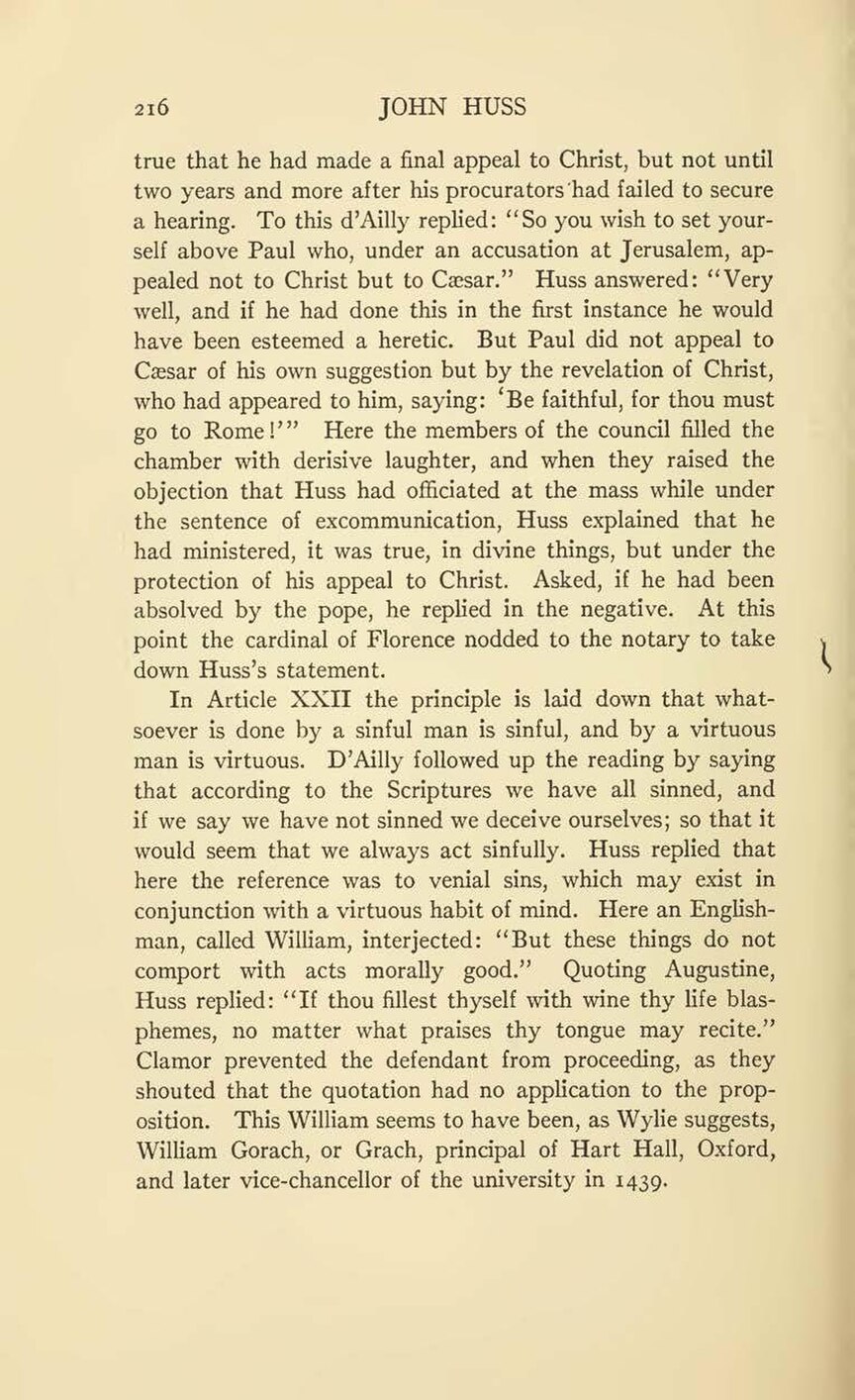true that he had made a final appeal to Christ, but not until two years and more after his procurators had failed to secure a hearing. To this d’Ailly replied: “So you wish to set yourself above Paul who, under an accusation at Jerusalem, appealed not to Christ but to Cæsar.” Huss answered: “Very well, and if he had done this in the first instance he would have been esteemed a heretic. But Paul did not appeal to Cæsar of his own suggestion but by the revelation of Christ, who had appeared to him, saying: ‘Be faithful, for thou must go to Rome!’” Here the members of the council filled the chamber with derisive laughter, and when they raised the objection that Huss had officiated at the mass while under the sentence of excommunication, Huss explained that he had ministered, it was true, in divine things, but under the protection of his appeal to Christ. Asked, if he had been absolved by the pope, he replied in the negative. At this point the cardinal of Florence nodded to the notary to take down Huss’s statement.
In Article XXII the principle is laid down that whatsoever is done by a sinful man is sinful, and by a virtuous man is virtuous. D’Ailly followed up the reading by saying that according to the Scriptures we have all sinned, and if we say we have not sinned we deceive ourselves; so that it would seem that we always act sinfully. Huss replied that here the reference was to venial sins, which may exist in conjunction with a virtuous habit of mind. Here an Englishman, called William, interjected: “But these things do not comport with acts morally good.” Quoting Augustine, Huss replied: “If thou fillest thyself with wine thy life blasphemes, no matter what praises thy tongue may recite.”
Clamor prevented the defendant from proceeding, as they shouted that the quotation had no application to the proposition. This William seems to have been, as Wylie suggests, William Gorach, or Grach, principal of Hart Hall, Oxford, and later vice-chancellor of the university in 1439.
